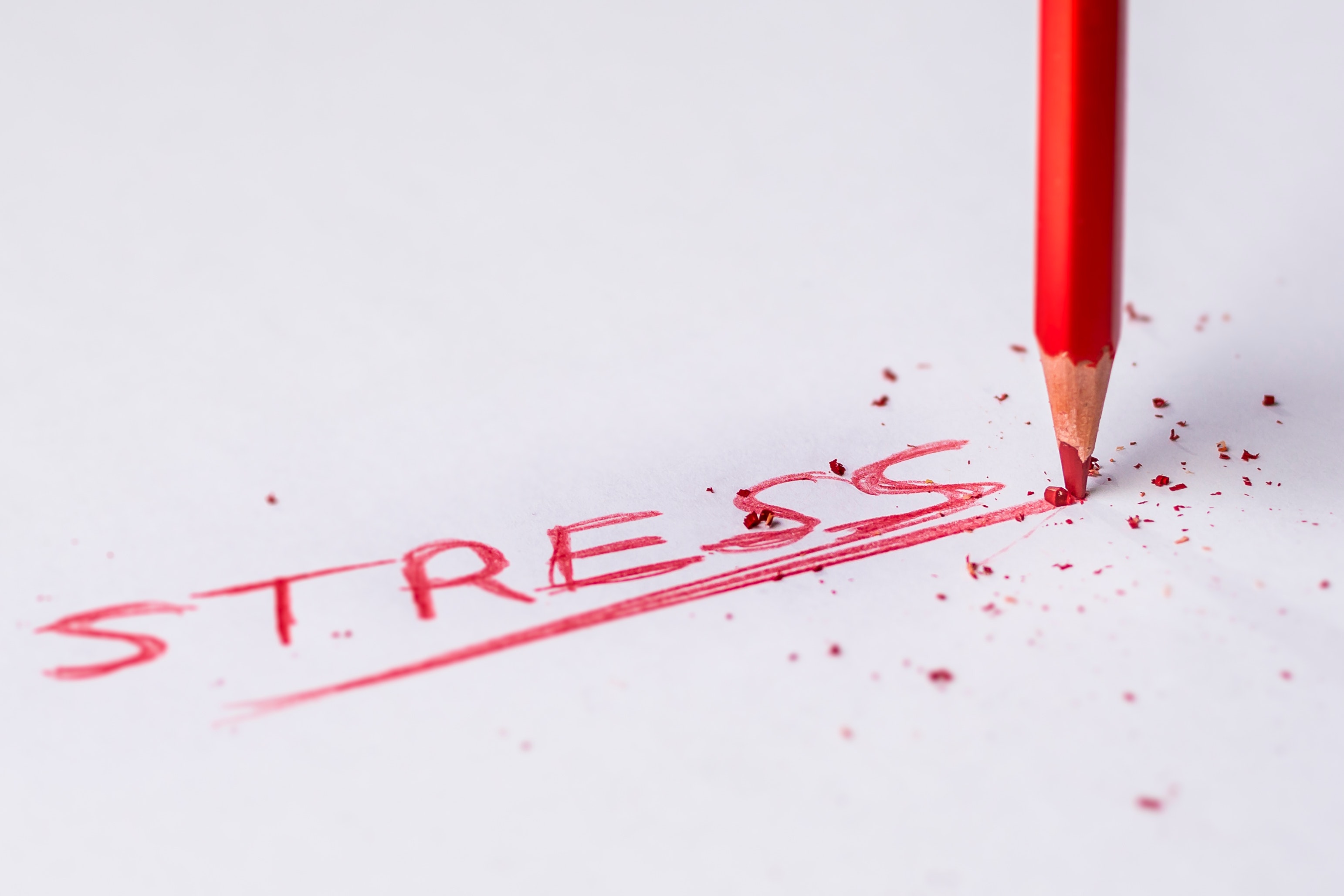Stress.
It’s a dirty, six-letter word. It’s pervasive. And yet elusive. It’s hard to define. So much so, there are huge debates by really smart people (clinicians, medical researchers, and the like) on the matter. Therefore, I won’t attempt to develop my own definition or to simplify the construct. However, I do want to begin a discussion that we’ll revisit regularly. Stress is so prevalent in our lives–it’s worthy of our attention.
So, What IS Stress?
Let’s start with some common definitions. According to the American Institute of Stress (AIS), stress is “physical, mental, or emotional strain or tension”. Another definition: stress is “a condition or feeling experienced when a person perceives that demands exceed the personal and social resources the individual is able to mobilize.”
I was led to look up the definition of stress recently after a frustrating–or rather–stressful appointment with one of my doctors:
Scene.
I’m in my gastroenterologist’s office discussing next steps since I had been under his care for almost a year with no improvement. After talking through possibilities and potential treatments, he pauses and then says:
“You know, at some point, we’re going to have to talk about stress and stress management. Stress can play a role and I’m starting to suspect it’s a factor in what you’re experiencing. Are you stressed?”
Break the fourth wall, look into the camera, queue blank stare.
End scene.
Third Time’s a Charm
After leaving the doctor’s office, I sat in my car and fumed.
 He was the third doctor this year to say stress was a probable cause of the issue for which I was seeking care. And this made me angry. Because…I didn’t feel stressed. There was no particular “issue” happening in life to which I could point and say “this one thing is stressful.” I was (am) just living life. And, sir, you telling me I need to find a way to manage my stress was…leading to me feeling stressed.
He was the third doctor this year to say stress was a probable cause of the issue for which I was seeking care. And this made me angry. Because…I didn’t feel stressed. There was no particular “issue” happening in life to which I could point and say “this one thing is stressful.” I was (am) just living life. And, sir, you telling me I need to find a way to manage my stress was…leading to me feeling stressed.
Still sitting in my car, unwilling to drive off because I was so frustrated (dramatic, I know), I called my husband. Queue rant:
“What the hell is stress anyway? That’s a cop-out. I wish these doctors would take the time to figure out what’s really going on with me and stop using ‘stress’ as an excuse…”
After listening to my tirade for a minute, The Husband piped in. Bravely, he said “well, I do think you’re stressed. It’s just that stress has become such a regular part of your life that you can’t see it.” He proceeded to provide examples of tangible ways in which my stress was obvious (to him). As he articulated multiple examples, it became clear to me as well. Frankly, I was shocked. But grateful for the mirror and the wakeup call.
What became evident was an important truth: I have normalized stress. I am so accustomed to operating at a certain level of intensity and state of hyper-productivity, that I don’t see any other way of being.
Numbers Don’t Lie
Apparently, I am in good company–with most of the U.S. Let’s look at some numbers. According to AIS:
| U.S Stress Statistics | Data |
| Percent of people who regularly experience physical symptoms caused by stress | 77 % |
| Regularly experience psychological symptoms caused by stress | 73 % |
| Feel they are living with extreme stress | 33 % |
| Feel their stress has increased over the past five years | 48 % |
| Cited money and work as the leading cause of their stress | 76 % |
| Reported lying awake at night due to stress | 48 % |
| Stress Impact Statistics | |
| Percent who say stress has negative impact on personal and professional life | 48 % |
| Employed adults who say they have difficulty managing work and family responsibilities | 31 % |
| Percent who cited jobs interfering with their family or personal time as a significant source of stress | 35 % |
| Percent who said stress has caused them to fight with people close to them | 54 % |
| Reported being alienated from a friend or family member because of stress | 26 % |
| Annual costs to employers in stress related health care and missed work | $300 Billion |
| Percent who say they are “always” or “often” under stress at work | 30% |
American Psychological Association, 2017
Consequences
The World Health Organization has dubbed stress the “Health Epidemic of the 21st Century”. Stats around stress in the U.S. are alarming. 77% of people experience physical symptoms caused by stress. There are real consequences to not managing stress properly and to letting chronic stress go unchecked–physical, mental, emotional, physiological, social, professional, and financial implications.
As a spouse, a parent, and a leader, it’s incumbent upon me to understand stress and its implications both personally and professionally. It’s important to not only be vigilant about stress management for me but to also be aware of stressors for my family and my team and to help each navigate and manage for themselves. If I’m honest, I have not historically done a bang-up job of managing stress. Within the last year, I’ve added exercise, therapy, and acupuncture to my stress management regimen and I indeed see (feel) a difference. Over time, I’ll unpack my experiences with the same and share my learnings.
What Now?
As stated above, there’s a lot to this “small but mighty” six-letter word. In the future, we’ll explore the physical/physiological effects of stress, stress and mental health, stress in the workplace, stress management, and other related topics.
In the meantime, I encourage you to start with a simple observation, acknowledgment, and reflection on your current level of stress and basic things you can do to help manage (hint: deep breathing is everything!)
More to come.












[…] consistent self-care practice. No gym, no acupuncture, no therapy. The three-legged stool of my stress-management regimen was missing. Not to mention journaling and meditating–my other anchors. In the […]